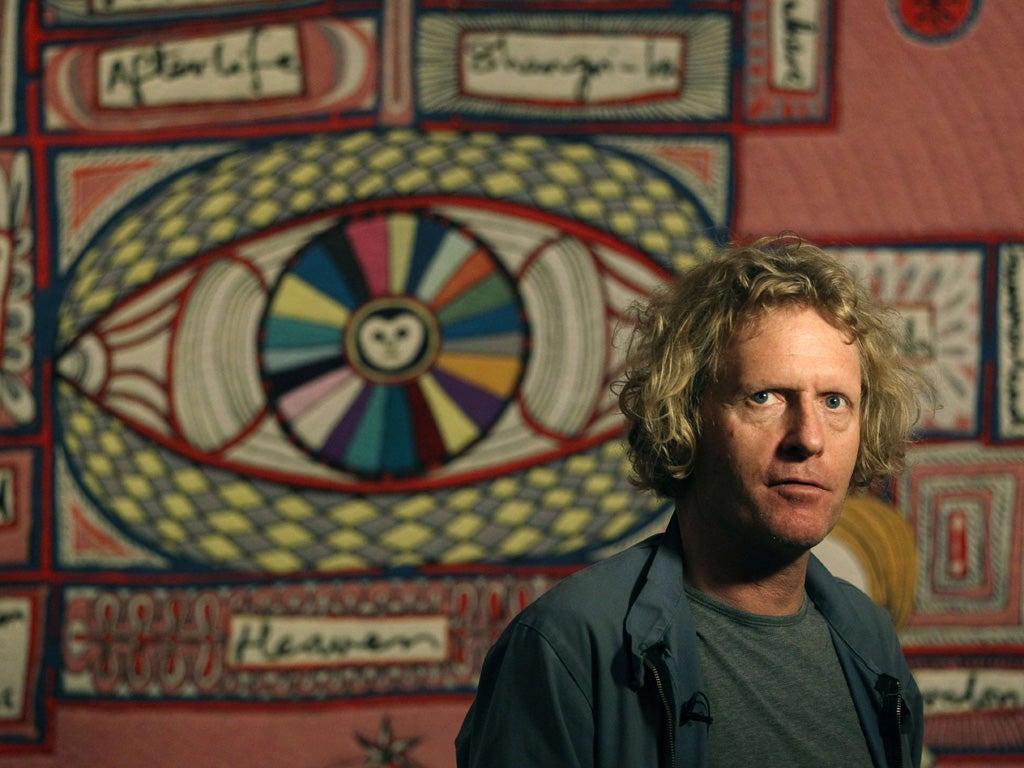Grayson Perry’s Reith Lectures sought to make art the public's responsibility – it’s a liberating prospect
The previous Turner Prize winner has opened up a seemingly exclusive party to all

Your support helps us to tell the story
From reproductive rights to climate change to Big Tech, The Independent is on the ground when the story is developing. Whether it's investigating the financials of Elon Musk's pro-Trump PAC or producing our latest documentary, 'The A Word', which shines a light on the American women fighting for reproductive rights, we know how important it is to parse out the facts from the messaging.
At such a critical moment in US history, we need reporters on the ground. Your donation allows us to keep sending journalists to speak to both sides of the story.
The Independent is trusted by Americans across the entire political spectrum. And unlike many other quality news outlets, we choose not to lock Americans out of our reporting and analysis with paywalls. We believe quality journalism should be available to everyone, paid for by those who can afford it.
Your support makes all the difference.From the outside, the world of contemporary art often feels like a party held by a group of particularly unwelcoming hosts. They’ll invite you into the foyer (Tate Modern prides itself on being one of London’s most visited attractions) before refusing to introduce you to the other guests. You skirt the edges of the room, making nervous eye contact with people you might recognize, but never feel that you really get what’s so great about the whole occasion, or wonder if there’s anything to get at all.
Without mincing my words: it sometimes seems like a party full of arrogant phoneys who separate themselves from the rest of the world with a veil of shibboleths and in-jokes, and couldn't care less what you thought of them or their work - a fact ably demonstrated by Mark Leckey in what is probably my favourite YouTube comment of all time.
Luckily, the Turner Prize winning artist Grayson Perry, giving this year’s Reith Lectures for the BBC, has done his utmost to pull us into the party fray. In his talks, he mischievously pointed out the inconsistencies and inequalities that shape art, and which propel certain artists to fame while leaving others to drift into obscurity. Perry was a joy to listen to. His gruff Essex delivery shifted our attention from the fact that he was wearing some pretty out-there outfits (entertainingly described by a bemused Sue Lawley): and throughout, he was able to address his audience directly, without condescension. In many ways, radio might be the best place for an artist whose roaring costumes threaten to drown out his words. Grayson Perry proved to be as adept at weaving together vivid little vignettes and quotes as he is at composing his bright, intricate and rambling tapestries
Love-in over, it’s time to look for the nub of Perry’s arguments, which sometimes got lost among the artist’s needle-sharp observations concerning the fickleness of taste, and the swerving, self-deprecating humour of the talks in general. The thread that ran through the lectures was the idea that 'doing' art - both in its creation, and in its consumption - is a skill that can only be learned through practice. As Perry said in his Start The Week discussion with Penelope Curtis, the director of Tate Britain, appreciating contemporary art is something that you have to “work at”: you can't just stumble into a gallery and expect to understand or like everything that's being exhibited. It might sound here as though Perry thinks of art in the same way that Julian Fellowes considers Shakespeare, but the rift between the two couldn't be wider.
Perry firmly persuades us not only that it is our own responsibility to give art a second thought before writing it off as ‘not for me’, but also that we’ve always got the right to go with our guts, however clueless we might feel. Keeping this in mind is a liberating idea - and one which gives us the keys to a whole universe of ideas and expression. With them, we can gatecrash the art-party as often as we like. Try it: the more you do, the faster that feeling of being the uninvited guest will evaporate.
Join our commenting forum
Join thought-provoking conversations, follow other Independent readers and see their replies
0Comments